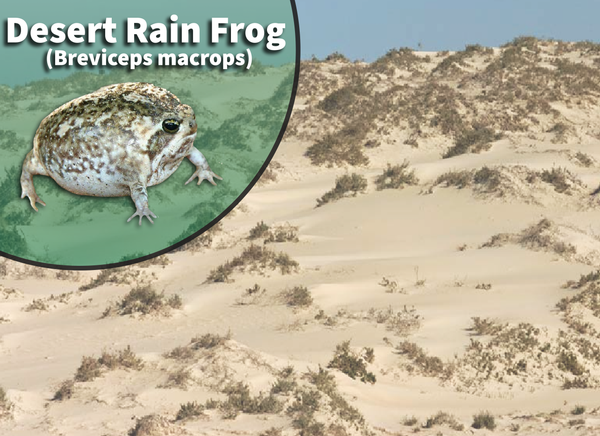Rain Frog for Sale: Explore Uncommon Amphibian Family Pets at Unbeatable Rates!
Rain Frog for Sale: Explore Uncommon Amphibian Family Pets at Unbeatable Rates!
Blog Article
Common Health And Wellness Issues in Reptiles: Signs and Solutions
In the detailed globe of reptile care, comprehending the common health and wellness issues that might affect these special animals is vital in guaranteeing their health. Whether it's grappling with parasitical invasions, browsing dehydration concerns, or addressing skin disorders that manifest in subtle methods, being attuned to the symptoms and outfitted with the knowledge of effective services is crucial for any kind of reptile owner.
Breathing Infections
Respiratory system infections in reptiles can significantly affect their general health and wellness and need timely focus from seasoned vets. These infections are commonly caused by fungis, germs, or viruses and can manifest via signs and symptoms such as hissing, nasal discharge, open-mouth breathing, and sleepiness. In reptiles, respiratory system infections can be specifically testing to identify and treat due to their unique anatomy and physiology. Vets usually rely on a mix of physical exams, diagnostic imaging, and laboratory examinations to properly determine the underlying root cause of the infection.
Treatment for respiratory infections in reptiles commonly entails a combination of encouraging care, such as preserving correct humidity degrees and temperature slopes in the room, as well as targeted drug to deal with the specific virus in charge of the infection. It is crucial for reptile proprietors to monitor their family pets closely for any kind of signs of respiratory system distress and seek vet care at the earliest indicator of a problem. With prompt intervention and suitable therapy, numerous reptiles can recoup fully from respiratory system infections and resume typical tasks.

Metabolic Bone Illness
What factors add to the development of Metabolic Bone Condition in reptiles?
Metabolic Bone Illness (MBD) in reptiles is mostly triggered by an absence of correct calcium, phosphorus, and vitamin D3 degrees in their diet plan. In addition, poor direct exposure to UVB light protects against reptiles from manufacturing vitamin D3, which is critical for calcium absorption and bone wellness.
Various other adding aspects to MBD include incorrect temperature level slopes within the reptile's habitat, leading to decreased metabolic rate and damaged calcium absorption. Not enough moisture levels can also influence a reptile's capacity to metabolize calcium successfully. Additionally, specific reptile species have specific nutritional requirements that, if not fulfilled, can raise the likelihood of developing MBD. Routine veterinary examinations, proper husbandry techniques, and a well balanced diet regimen are necessary to stop Metabolic Bone Illness in reptiles.
Parasitic Problems
Parasitic invasions pose a substantial health danger to reptiles, impacting their total wellness and calling for prompt veterinary focus. Reptiles can be affected by different bloodsuckers, including mites, ticks, interior worms, and protozoa. These bloodsuckers can create a variety of signs and symptoms, such as weight management, sleepiness, skin irritation, looseness of the bowels, and also fatality if left neglected.
One typical bloodsucker found in reptiles is the mite, which can cause skin irritability, anxiety, and anemia. Ticks are another external parasite that can transfer illness and trigger pain to the reptile. Internal parasites like worms and protozoa can result in digestion problems, lack of nutrition, and damage the reptile's body immune system.
To detect a parasitical problem, a vet might execute fecal examinations, skin scrapings, or blood examinations. Therapy commonly entails deworming drugs, antiparasitic baths, or in severe cases, hospitalization. Preventative measures such as normal vet examinations, proper hygiene, and quarantine treatments for brand-new reptiles can assist lessen the danger of parasitic infestations and make certain the health of reptile family pets.
Dehydration and Hydration Issues
Dehydration in reptiles can substantially impact their wellness and well-being, demanding timely treatment and suitable hydration monitoring. If left without treatment, dehydration can lead to major health issues and even be fatal to the reptile.
To prevent dehydration, reptile owners must ensure that their family pets have accessibility to clean water whatsoever times. The water dish must be huge enough for the reptile to take in if required, particularly for varieties that soak up water through their skin. Additionally, maintaining proper moisture levels in the reptile's unit and offering routine bathrooms can help prevent dehydration.
In instances of dehydration, it is essential to look for veterinary care quickly. A vet might administer fluids either orally or with shots to rehydrate the reptile. It is important to attend to the underlying reason of dehydration to stop recurrence and guarantee the reptile's overall wellness.
Skin Disorders
Final Thought

Breathing infections in reptiles Recommended Site can considerably impact their total health and wellness and call for timely attention from seasoned veterinarians (rain frog for sale). Preventative measures such as routine veterinary exams, appropriate health, and quarantine procedures for brand-new reptiles can assist minimize the risk of parasitical invasions and make certain the well-being of reptile pet dogs
If left unattended, dehydration can lead to serious health concerns and also be fatal to the reptile.
Frequently checking your reptile for any type of changes in skin color, structure, or appearance can help in very early discovery and treatment of skin ailments, promoting the general health and wellness of your flaky companion. - rain frog for sale
In final thought, reptiles are vulnerable to various health problems such as respiratory infections, metabolic bone disease, parasitical problems, dehydration, and skin conditions.
Report this page